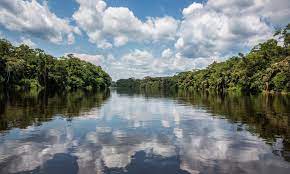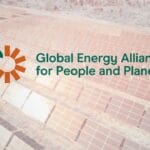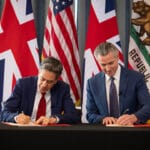Africa Finance Firms Form Alliance to Tackle Biodiversity Crisis

Many of Africa’s biggest banks and insurers have joined forces to tackle the continent’s biodiversity crisis while at the same time working out how to cash in on opportunities arising from it.
The African Natural Capital Alliance, launched Wednesday, is the latest in a flurry of finance sector interest in the risks and opportunities associated with the threats to biodiversity globally and its establishment is in a continent overwhelmingly dependent on nature for economic activity.
Over 60% of Africa’s gross domestic product is in some way dependent on nature, lagging only behind Indonesia and India, the World Economic Forum estimates, meaning its destruction represents enormous financial loss. And biodiversity is rapidly declining. Between 1970 and 2016, the continent’s population of mammals, fish, amphibians and reptiles fell by 65%, the WWF found.
Financial institutions that have joined include South Africa’s biggest bank by market value, FirstRand Ltd., and leading Nigerian and Kenyan banks, Access Bank Plc and Equity Group Holdings Plc. Togo-based Ecobank Transnational Inc is also a member as is Standard Chartered Plc and South African insurer Sanlam Ltd.
South Africa, Nigeria and Kenya have the most developed capital markets in sub-Saharan Africa.
See related articles: Wildlife Conservation Bond Boosts South Africa’s Efforts to Protect Black Rhinos and Support Local Communities, Accelerating Change in African Supply Chains: From Inclusive Procurement to Gender Responsive Procurement – Leaders Summit Session 2022, CarbonlandDAO and Trust ESG NFTs Protect Forest Biodiversity and Generates Carbon Removal Credits,
Responsible management of Africa’s natural capital, including its water, soil and forests, “creates fantastic opportunities and contributes to the growth and development of the continent,” Rachael Antwi, group head of ESG at Ecobank said.
Her comments echo a broader trend in the investor community with biodiversity-related investment products now ranging from natural capital equity funds to biodiversity offset credits.
Africa is home to the world’s biggest population of large mammals such as elephants and rhinos as well as the Congo Basin, the second-biggest tropical forest.
The African Natural Capital Alliance will focus its efforts on shifting financial flows from activities that destroy nature to more sustainable practices and lobbying to ensure that emerging global standards for nature-related risk management reflect African contexts, it said in a statement.
Government institutions such as Ghana’s Ministry of Environment, Science, Technology and Innovation and the UK-funded development agency FSD Africa are also members.
Source: Natasha White, Bloomberg








